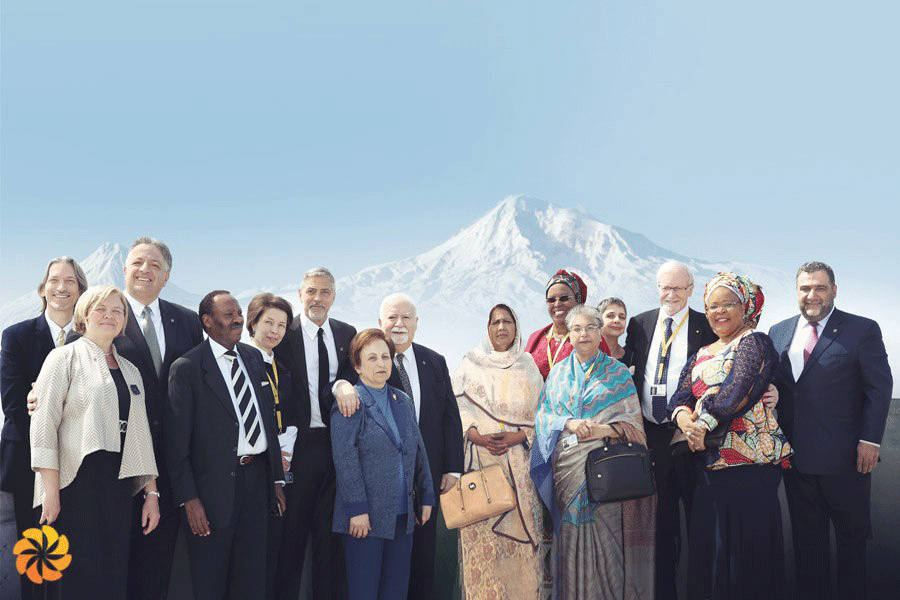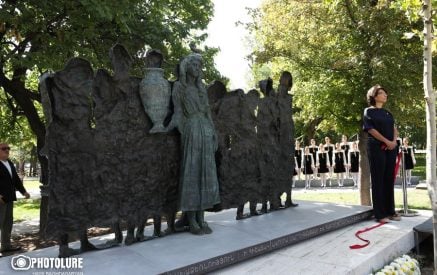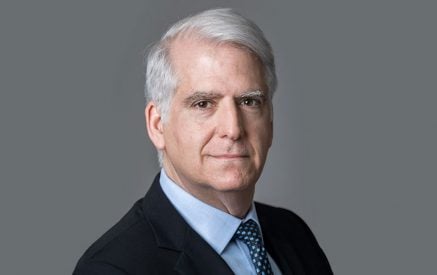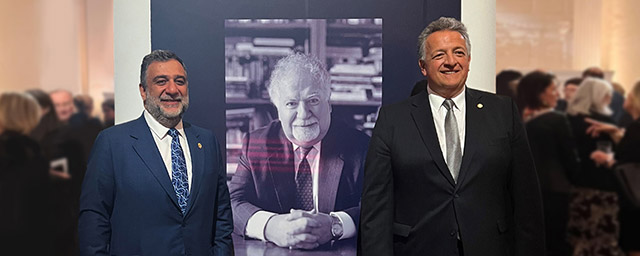The trustees of The New York Public Library have voted to rename the Center for Research in the Humanities to the Vartan Gregorian Center for Research in the Humanities. The change recognizes the profound contribution of Vartan Gregorian, NYPL president between 1981–89, who is credited with restoring and revitalizing the Library—structurally, fiscally, and reputationally as an essential civic and educational center.
Born in 1934 in Tabriz, Iran to Armenian parents, he learned the value of reading and libraries in his youth. At age 11, he began working part-time as a page at the Armenian library. In his memoir, The Road to Home: My Life and Times, he recounted that the library “proved to be a great oasis of privacy, peace, and occasional solitude. I loved to read, and I read everything…the library opened up a new world.”
Read also
In his 20s, he moved to the U.S. to attend Stanford, graduating with a degree in history and humanities and then completing his Ph.D. in history. After teaching stints at colleges in California and Texas, he moved east to join the faculty at the University of Pennsylvania where he would go on to become the dean of the Faculty of Arts and Sciences, and provost. Had the trustees chosen him to become the next president of UPenn as he desired, the fate of NYPL may have been very different.
Passed over at UPenn, Dr. Gregorian instead took the top job at The New York Public Library in 1981. Along with other public services, NYPL had suffered wrenching budget cuts during the City’s fiscal crisis the preceding decade. The institution he arrived at was financially deprived, operating at a bare minimum, and with a dispirited staff and decaying facilities.
Dr. Gregorian set about learning the ins and outs of the vast library ecosystem by talking to staff, visiting branches, and even putting in shifts answering phones at the information desk which he described to the New Yorker as “a terrifying experience.” With the trustees, he created a wishlist—facilities improvements, staffing, computerization, and more—and announced an ambitious $307 million capital fund campaign.
Over the next five years, Dr. Gregorian used his charm, drive, and natural salesmanship to present a compelling case for the Library and attract the private and public support to not just meet but exceed the funding goal. In doing so, he created a model for the future—a coalition of politicians, business leaders, social figures, and scholars to act as allies and champions of the Library’s essentialness to the people of New York and to the city’s civic and intellectual life.
Under Gregorian’s leadership, branch and research library hours were expanded, the flagship 42nd street location was restored, air conditioning and humidity controls were added to the bookstacks, a large-scale computerization project was begun, the collections were strengthened with a focus on multilingual and multicultural materials, and education and literacy offerings increased. Importantly, he turned the Library into more than a depository of physical items, but into a premier host for cultural and literary events.
Speaking at NYPL in 2006 with author and historian (and 2023 Library Lion inductee) David Nasaw about the transformative philanthropy of Andrew Carneige toward public libraries in the early 1900s, Dr. Gregorian remarked:
“People are craving for immortality one way or another and there is no institution in my opinion on earth that can give immortality—earthly immortality, that is—other than a library…All the buildings change, the names change, it’s the library that keeps the memory, accomplishments of everybody.”
The New York Public Library’s renaming of the Center for Research in the Humanities to the Vartan Gregorian Center for Research in the Humanities is one way we hold the memory and legacy of his contribution and express our gratitude for not just rescuing and restoring our Library, but championing the value and importance of libraries everywhere.




























































